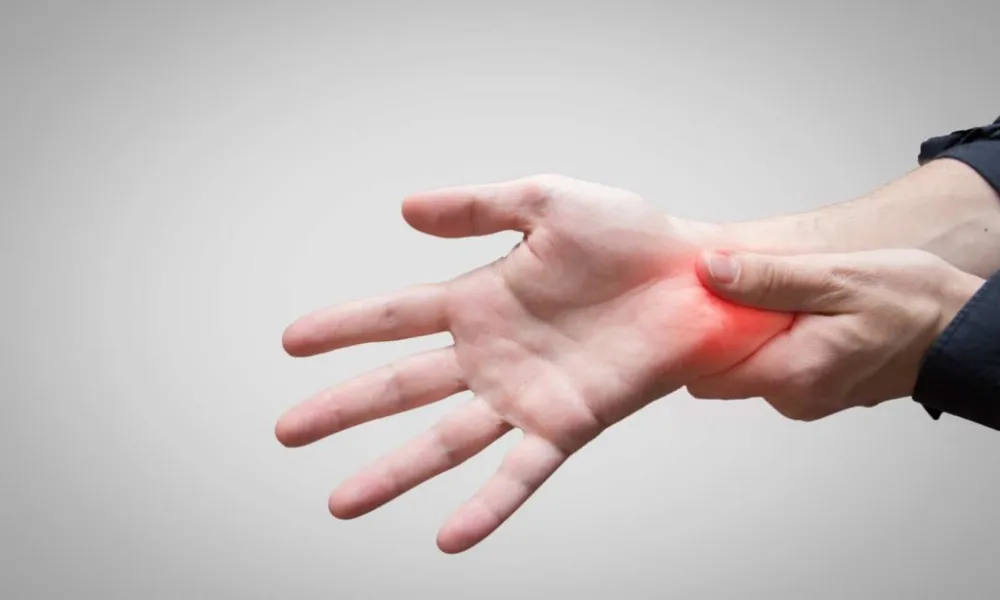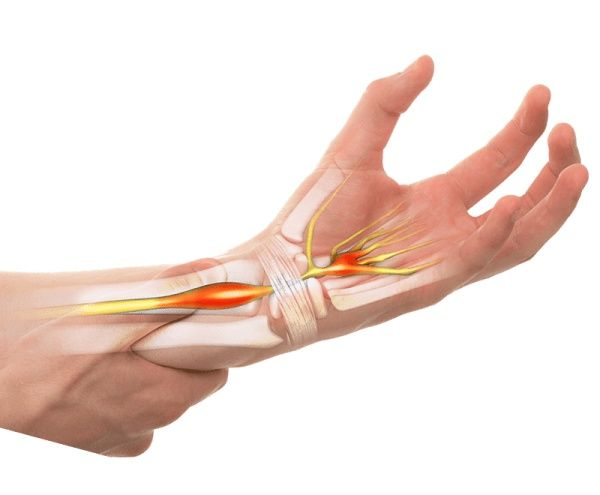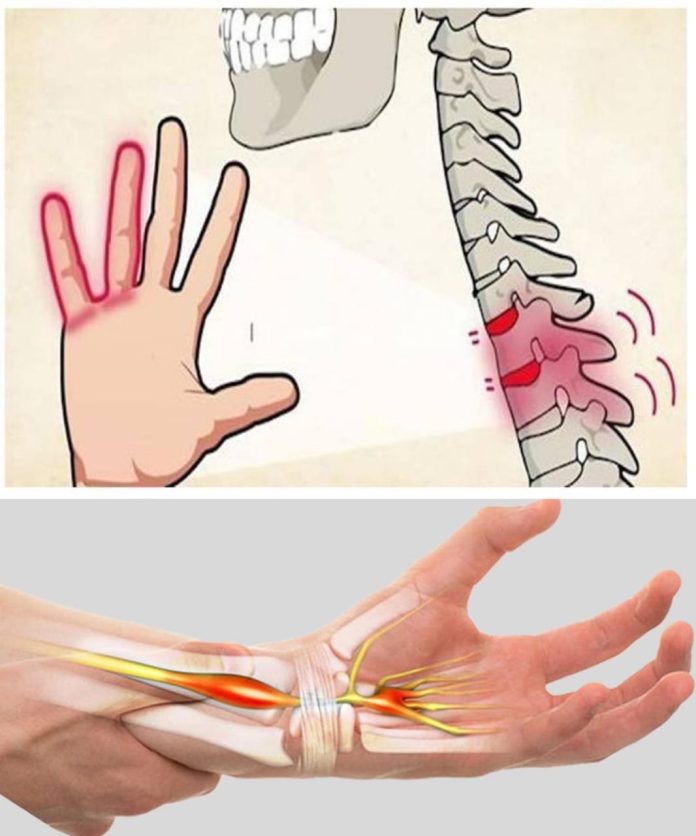What Your Body Is Trying to Tell You When You Feel Numbness in Your Hands
Feeling numbness in your hands can be unsettling and might even cause alarm. Although it might seem like a minor inconvenience, this sensation often serves as your body’s way of sending an important signal. Understanding the causes can help address underlying issues early. Here’s a breakdown of what numbness in your hands could mean for your health:
1. Poor Circulation: A Subtle Alarm
One of the most common reasons for hand numbness is restricted blood flow. When circulation to your hands is interrupted, you may feel tingling or numbness. This can occur due to:

Sitting or lying in an awkward position.
Exposure to cold temperatures, which causes blood vessels to constrict.
If this happens often, it might indicate an underlying circulatory issue requiring medical evaluation.
2. Nerve Compression: Your Body’s SOS
Nerves are responsible for transmitting signals between your brain and body. When compressed, they can’t function effectively, leading to numbness. Common causes include:
Carpal Tunnel Syndrome: Pressure on the median nerve in the wrist.
Pinched Nerve in the Neck: Often associated with poor posture or spinal problems.
3. Vitamin Deficiencies: A Call for Better Nutrition
Insufficient levels of essential vitamins, particularly Vitamin B12, can damage nerves and cause numbness. Other signs, such as fatigue or memory problems, may accompany this condition, signaling the need to check your vitamin levels.
4. Diabetes: A Warning from Your Nerves
Numbness in the hands can be an early sign of peripheral neuropathy, a condition often linked to diabetes. This occurs when prolonged high blood sugar levels damage the nerves. Early diagnosis and proper management are critical to prevent further complications.
5. Stress and Anxiety: Physical Manifestations
Chronic stress or anxiety can also lead to physical symptoms, including numbness in the hands. Hyperventilation during anxiety episodes reduces blood flow to the extremities, causing these sensations. Incorporating stress-management practices into your routine can help alleviate the symptoms.
6. Serious Conditions to Be Aware Of
Although rare, numbness in the hands may indicate serious health issues, such as:
Stroke: If numbness appears suddenly and is accompanied by weakness or difficulty speaking, seek emergency medical attention.
Multiple Sclerosis (MS): Numbness in the hands can be an early symptom of this neurological condition.
What Should You Do?
If you frequently experience numbness in your hands, take note of the accompanying symptoms and patterns. While occasional numbness may be harmless, persistent or severe cases warrant professional medical advice to rule out serious conditions. Early intervention is often key to maintaining your overall health.

Conclusion
Numbness in your hands should not be ignored, as it is often your body’s way of signaling an underlying issue. From poor circulation and nerve compression to vitamin deficiencies and more serious conditions like diabetes or stroke, this sensation can have various causes. Paying attention to the frequency, duration, and accompanying symptoms is crucial. If the numbness persists or worsens, seeking medical advice is essential to identify the root cause and address it early. Taking proactive steps toward a healthier lifestyle, such as improving your posture, managing stress, and ensuring proper nutrition, can also help prevent and alleviate this uncomfortable sensation.

















